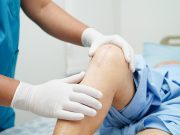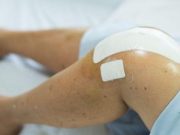Tag: JOIN
Study IDs Predictors of Biomechanical Function in Patients With OA Undergoing Hip Replacement
Radiographic osteoarthritis severity best predictor of preoperative biomechanical function, while preoperative muscle fat fraction best predictor of postoperative function
Birmingham Hip Resurfacing Safe, Effective Over 15 Years
15-year survivorship free from any revision and from aseptic revision was excellent, at 96.0 and 97.4 percent, respectively
AAOS: Spouses of Patients Undergoing Joint Replacement See Their Own Lives Improve
Spouses report progressively providing less assistance to the patient in daily activities over time
AAOS: Stopping GLP-1 RAs 14 Days Before Surgery Can Minimize Complications
Patients who continued Ozempic through total joint arthroplasty had the highest risk for complications
Weight Loss After Antiobesity Medication Initiation Lowers Joint Revision Risk
Higher weight loss after initiating antiobesity meds linked to lower risk for revision of hip and knee replacement
Study Quantifies COVID-19-Linked Deficit in Arthroplasties in the U.K.
Deficit totals 158,994 joint replacements, and elimination of deficit expected to take until 2031 with 10 percent increase in capacity
Preop Lab Values May ID Risk of Postarthroplasty Joint Infection in Morbid Obesity
Findings for preoperative anemia, abnormal platelet count, and elevated systemic immune-inflammation index
Robotic-Assisted Total Knee Arthroplasty Has Fewer Complications
Fewer complications seen compared with conventional total knee arthroplasty, but robotic-assisted procedure is more costly
Arthroscopic Surgery for Arthritis Does Not Impact Incidence of Total Knee Arthroplasty
Nonoperative management with or without arthroscopic surgery does not delay or hasten total knee arthroplasty
Elimination of Extended-Release Opioids Can Improve Outcomes After TKR
Reduction seen in antiemetic use, nonsignificant reduction in length of stay, increase in proportion discharged to home














